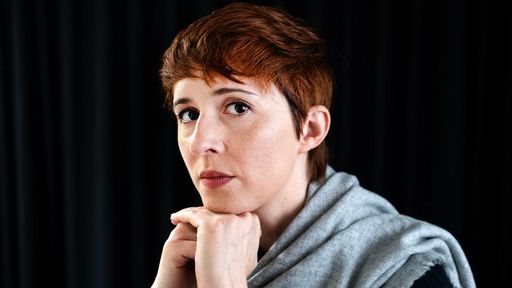Video game performers said they will begin striking interactive media companies at 12:01 a.m. Friday following what they say are unacceptable protections against the use of artificial intelligence.
Represented by the Screen Actors Guild-American Federation of Television and Radio Artists, the voice actors and motion capture performers have been negotiating for about a year and a half with major game studios, including divisions of Activision, Walt Disney Co., Warner Bros. and other companies but have not reached a deal.
“If your performance is being replicated, you deserve access to essential information. You deserve to give or not give your consent, and you need to be paid properly. Period,” video game actor and SAG-AFTRA Interactive Media Negotiation Committee Chair Sarah Elmaleh said Thursday during a briefing about the strike at SAG-AFTRA headquarters in Hollywood.
“This is fair, this is feasible and anything less is exploitation,” said Elmaleh, who is known for her roles in games including "Halo Infinite" and "Gone Home." “The employers refuse to plainly affirm in clear and enforceable language that they will protect all performers covered in this contract.”
SAG-AFTRA said all 160,000 of its members are covered by the strike order. SAG-AFTRA membership includes actors, announcers, broadcast journalists, dancers, voiceover artists and other media professionals, according to its website, including video game performers. The union would not say how many of its members perform in video games, only that their performances fall into three categories: voice, face and body.
The strike comes just as the four-day Comic-Con comic book convention kicks off in San Diego. SAG-AFTRA said they are carving out a strike exemption for the event.
Every video game company that is part of the Interactive Media Agreement with SAG-AFTRA will be struck unless they sign on to a new agreement that offers AI protections for the union’s members. SAG-AFTRA has been negotiating with Activision Productions, Blindlight, Disney Character Voices, Electronic Arts Productions, Formosa Interactive, Insomniac Games, Llama Production, Take 2 Productions, VoiceWorks Productions and WB Games since October 2022.
“We are disappointed the union has chosen to walk away when we are so close to a deal, and we remain prepared to resume negotiations. We have already found common ground on 24 out of 25 proposals, including historic wage increases and additional safety provisions,” spokesperson for the video game producers party to the Interactive Media Agreement, Audrey Cooling, told Spectrum News.
“Our offer is directly responsive to SAG-AFTRA’s concerns and extends meaningful AI protections that include requiring consent and fair compensation to all performers working under the IMA. These terms are among the strongest in the entertainment industry.”
Elmaleh acknowledged that negotiations had brought “a significant wage increase and safety provisions for our on-camera provisions for our on-camera performers, as well as partial but dangerously incomplete AI provisions.”
SAG-AFTRA members approved a video game strike with 98.32% approval last September.
U.S. consumer video game spending totaled $57.2 billion in 2023, according to the Entertainment Software Association.
The video game performers strike comes roughly six months after the Screen Actors Guild ratified a hard-won new contract following a nearly four-month strike that paralyzed much of Hollywood.
Members of the Writers Guild of America struck the major Hollywood studios May 2 through Sept. 27, overlapping with members of the Screen Actors Guild, who struck July 14 through Nov. 9 to demand higher residual payments from streaming services and protections over the use of artificial intelligence. The new contracts included regulations requiring producers to get actors’ consent to use their likenesses for AI and pay them for it.
SAG-AFTRA said the AI protections in the interactive media negotiations “have so many holes that it puts our existence as perfomers in jeopardy,” the union's Chief Contracts Officer Ray Rodriguez said during Thursday’s briefing. “There are fewer protections than what was granted from AI through the SAG-AFTRA and Writers Guild of America strikes last year.”



